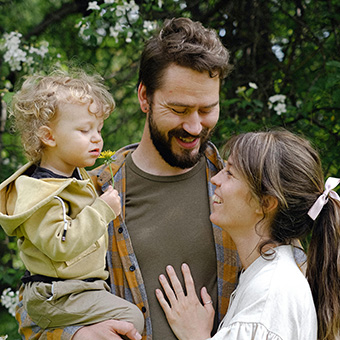Clinical Individual & Family Psychotherapy Services at CDCW
At the Counseling and Diagnostic Center of Woodfield, Ltd. (CDCW), our clinicians are highly trained and experienced in applying evidence-based, contemporary treatments for a wide range of mental health concerns. Depending on the nature of the presenting issues, services may include a combination of individual and family therapy sessions for you and/or your child(ren).
We provide a supportive, inclusive environment where clients of all ages—and their families—can explore concerns, build resilience, and work collaboratively toward meaningful change.
Individual Psychotherapy
What It Is
Individual psychotherapy—also known as individual therapy or counseling—is a one-on-one therapeutic process between a client and a licensed mental health professional. It provides a private and supportive setting to explore emotional, behavioral, and psychological challenges.
At CDCW, individual therapy is offered to children, adolescents, and adults. Our clinicians use developmentally appropriate, evidence-based interventions tailored to each client’s unique goals and needs.
What to Expect
Sessions typically involve open discussions, structured interventions, and goal-oriented strategies designed to foster insight, emotional growth, and behavioral change. For children and adolescents, therapy often includes collaboration with parents or guardians to reinforce progress outside of sessions and ensure continuity of care.
Sessions usually last 45 to 55 minutes and are most commonly held weekly. Scheduling is determined collaboratively during the early phase of treatment.
Benefits of Individual Psychotherapy
Individual therapy can help clients:
- Reduce symptoms of anxiety, depression, trauma, and other mental health concerns
- Build emotional awareness and regulation skills
- Improve coping strategies and stress management
- Increase self-confidence and self-esteem
- Strengthen communication and interpersonal relationships
- Navigate life transitions, grief, or identity development
- Set and achieve personal goals in a supportive, nonjudgmental space
A strong, trusting therapeutic relationship is central to the success of individual therapy. Our clinicians strive to create a safe environment where clients feel heard, empowered, and supported throughout their journey.
Family Psychotherapy
What It Is
Family psychotherapy is a collaborative treatment approach that involves two or more family members meeting together with a licensed clinician. It is based on the understanding that challenges faced by one individual are often interconnected with broader family dynamics.
At CDCW, family therapy can be offered as a stand-alone service or integrated with individual therapy to provide a more holistic, system-focused treatment experience.
What to Expect
Sessions are structured to support open communication, conflict resolution, and the development of healthier relational patterns. Depending on the needs of the family, sessions may involve parents, children, siblings, or extended relatives. Goals are developed collaboratively to ensure that each family member’s voice is heard and valued.
Family psychotherapy may address a range of concerns, such as:
- Parenting challenges
- Sibling conflict
- Behavioral issues at home or school
- Emotional disconnection or misunderstandings
- Divorce, co-parenting, or blended family transitions
- Supporting a loved one with mental health or developmental needs
Benefits of Family Therapy
Family psychotherapy can help families:
- Strengthen emotional bonds and build trust
- Improve communication and reduce conflict
- Promote empathy and understanding across generations
- Develop collaborative problem-solving skills
- Navigate major life changes together
- Create a more supportive and cohesive home environment
The frequency and structure of sessions are tailored to each family’s unique circumstances and are adjusted over time in collaboration with the clinician.
At CDCW, we believe that healing and growth often occur within the context of supportive relationships. Whether working individually or as a family, our clinicians are committed to helping clients build the tools, insight, and resilience needed for long-term wellness.


